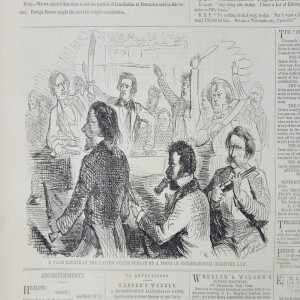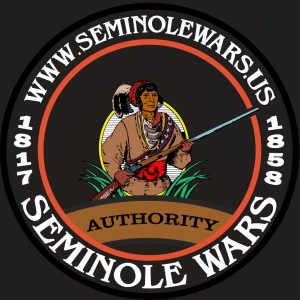
In our previous episode, Jesse Marshall gave listeners an overview of newspaper coverage of the Seminole Wars, reviewing their accuracy given the physical and technical constraints of the era. In this episode, Jesse relates the value of these newspapers’ accounts for informing the American public about what actions and activities their government engaged in on their behalf in the Seminole Wars.
Jesse lays out a mixed bag: some newspaper articles offered first-hand accounts of battle that hold up surprisingly well as part of the historical record. Others conveyed the gist of a battle but were wildly inaccurate about casualty details. Jesse explains how historians collate such reports -- often using reprints from the congressional record -- to attempt to arrive at an accurate assessment of what happened in a given encounter. In addition, printer capabilities improved to run woodcut illustrations, thereby presenting images, some accurate, some fanciful about the war.
Newspapers often often full congressional debates about the war and, when the technology permitted, illustrations of the contentious points being debated.
Late in the 3rd Seminole Wars period, printer technology advanced to the state where Harper's Weekly could run a spread illustrating Billy Bowlegs' story through text and art. Frank Leslie's Illustrated Weekly brought consistent images to its readers, but began too late for the Seminole Wars.
Chris Kimball presents an index to Seminole War Articles in the Army-Navy Chronicle. Below, David Fowler present full articles, in edition to an index, for war coverage in the Nile's Weekly Register, a national newspaper of the time.
Host Patrick Swan is a board member with the Seminole Wars Foundation. This podcast is recorded at the homestead of the Seminole Wars Foundation in Bushnell, Fla.
Subscribe automatically to the Seminole Wars Authority through your favorite podcast catcher and "like" us on Facebook, LinkedIn, and YouTube!
More Episodes
Create your
podcast in
minutes
- Full-featured podcast site
- Unlimited storage and bandwidth
- Comprehensive podcast stats
- Distribute to Apple Podcasts, Spotify, and more
- Make money with your podcast
It is Free
- Privacy Policy
- Cookie Policy
- Terms of Use
- Consent Preferences
- Copyright © 2015-2024 Podbean.com








